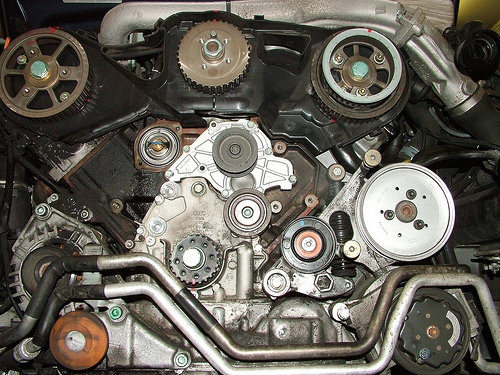
The Geo Tracker was a light-truck style, small SUV introduced in 1988 as a 1989 model. Although Geo, a subdivision of GM and maker of the famous/infamous Metro, was more known for making economy compacts with tiny 3-cylinder engines than trucks, the Tracker and its 1.6L four cylinder engine proved generally reliable. These four-pot powerplants have aged fairly well over the years, but time has taken its toll--particularly on the Tracker's ignition system and those things which should have been regularly serviced.
The term "misfire" is broad in scope, and can encompass anything from a fouled spark-plug to a cracked cylinder head. The single unifying factor in all misfires is that one or more cylinders fails to function as it should, leading to power loss, rough idle, unstable RPM and bad fuel economy.
Electrically-related misfires can also lead to hard starting, and usually get worse with RPM. Every component in the electrical system is a source for misfires, but the most common sources on the Tracker are the ignition coils and distributor cap. The ignition coils manufactured for these engines were outsourced to the lowest bidder, and are not of the highest quality, but are fairly easy and inexpensive to replace.
Since Trackers were marketed toward those who had little to spend on an automobile, many suffer from a lack of regular maintenance. If you have purchased one used, then the odds are about 70/30 that it still uses the stock 15+ year old fuel filter, which is likely clogged. A general tune-up should include replacement of the air, PCV (Positive Crankcase Ventilation), fuel and transmission fluid filters. Clogged fuel filters are one of the most common sources of misfire.
The distributor cap is notorious for "cross-firing", or activating numerous cylinders at once. Spark plugs and the associated wires will also degrade over time, and should be replaced. Trackers used old-style lead-pellet catalytic converters, which are known to become clogged and fail over time. If these devices clog, they will inhibit exhaust flow and can cause power loss, poor fuel economy, rough idling and unstable RPM at higher speeds.
Unfortunately, older Trackers used OBD-I diagnostics systems, which aren't nearly as comprehensive as the current generation OBD-II systems. Older systems will rarely yield any useful information to the modern computer-dependent diagnostician, so consider taking your Tracker to a mechanic that specializes in older cars.